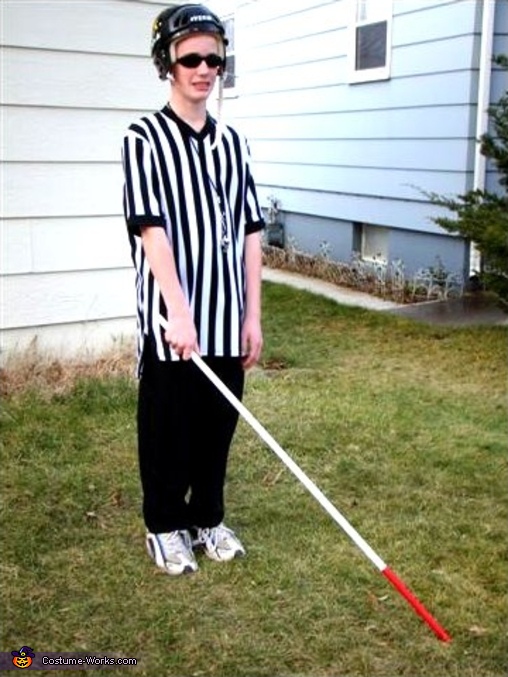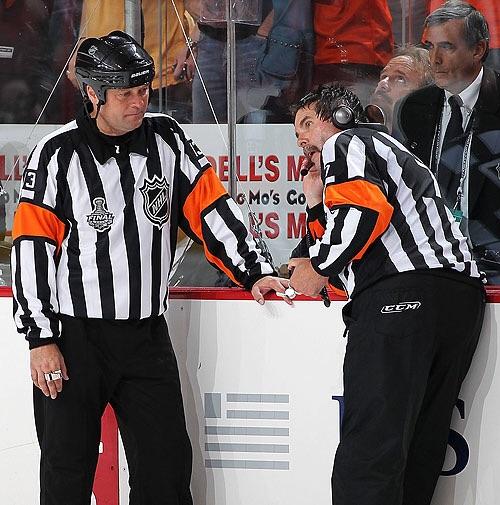Blind Hockey Referee: Revolutionizing The Game For Visually Impaired Players
Mar 27 2025
Blind hockey referee plays a pivotal role in ensuring fair play and safety during visually impaired hockey games. As the sport continues to gain popularity worldwide, understanding the responsibilities and intricacies of this unique role becomes increasingly important. This article delves into the world of blind hockey refereeing, exploring its challenges, significance, and the skills required to excel in this demanding yet rewarding profession.
Blind hockey, a fast-growing adaptive sport, has transformed the lives of visually impaired athletes. It provides them with an opportunity to participate in a high-energy team sport while fostering camaraderie and inclusivity. At the heart of every successful blind hockey game is a skilled referee who ensures the rules are followed and player safety is prioritized.
As the game evolves, so does the role of the blind hockey referee. This article aims to provide comprehensive insights into the responsibilities, training, and impact of blind hockey referees. Whether you're an aspiring referee, a coach, or simply someone interested in learning more about this fascinating sport, this guide will offer valuable information to enhance your understanding.
Read also:Bethany Book Dedication A Comprehensive Exploration
Table of Contents
- Introduction to Blind Hockey Referee
- History of Blind Hockey and Refereeing
- Responsibilities of a Blind Hockey Referee
- Essential Skills for Blind Hockey Referees
- Training and Certification for Blind Hockey Referees
- Challenges Faced by Blind Hockey Referees
- Role of Technology in Blind Hockey Refereeing
- Impact of Blind Hockey Referees on the Game
- Building a Strong Referee Community
- The Future of Blind Hockey Refereeing
Introduction to Blind Hockey Referee
Blind hockey referee is a specialized role that requires a unique combination of skills and knowledge. Unlike traditional hockey referees, blind hockey referees must adapt their techniques to accommodate the needs of visually impaired players. This involves understanding the specific rules of blind hockey, which differ significantly from standard hockey regulations.
The primary responsibility of a blind hockey referee is to ensure fair play and maintain the integrity of the game. They must also prioritize player safety, as visually impaired athletes rely heavily on auditory and tactile cues to navigate the rink. By mastering these skills, blind hockey referees contribute to the overall success and enjoyment of the sport.
History of Blind Hockey and Refereeing
Origins of Blind Hockey
Blind hockey originated in Canada in the early 1980s as a way to provide visually impaired individuals with an opportunity to participate in ice hockey. The sport quickly gained popularity across North America and Europe, leading to the establishment of formal leagues and competitions.
Evolution of Refereeing
As blind hockey grew in popularity, the need for specialized referees became apparent. Early blind hockey referees often adapted traditional hockey rules and techniques to suit the unique requirements of the sport. Over time, dedicated training programs and certification processes were developed to ensure referees were equipped with the necessary skills and knowledge.
Responsibilities of a Blind Hockey Referee
Blind hockey referees are responsible for enforcing the rules of the game, maintaining player safety, and ensuring fair play. Some of their key responsibilities include:
- Monitoring the game and calling penalties when necessary
- Communicating effectively with players and coaches
- Ensuring all equipment meets safety standards
- Maintaining a neutral and professional demeanor throughout the game
These responsibilities require referees to be highly attentive and adaptable, as the dynamics of a blind hockey game can change rapidly.
Read also:Best Pics To Beat To Your Ultimate Guide To Capturing Stunning Photographs
Essential Skills for Blind Hockey Referees
To excel as a blind hockey referee, individuals must possess a range of skills, including:
- Communication Skills: The ability to communicate clearly and effectively with visually impaired players is crucial. Referees often rely on verbal cues and hand signals to convey important information.
- Adaptability: Blind hockey games can be unpredictable, requiring referees to think quickly and adjust their strategies as needed.
- Knowledge of Rules: A thorough understanding of blind hockey rules and regulations is essential for making accurate calls during the game.
Developing these skills takes time and practice, but they are vital for success in this role.
Training and Certification for Blind Hockey Referees
Formal Training Programs
Many organizations offer formal training programs for aspiring blind hockey referees. These programs typically cover the rules of the game, safety protocols, and communication techniques. Participants also have the opportunity to practice their skills in simulated game scenarios.
Certification Requirements
To become a certified blind hockey referee, individuals must complete a series of training modules and pass a comprehensive exam. Certification ensures that referees meet the necessary standards and are prepared to officiate games at various levels of competition.
Challenges Faced by Blind Hockey Referees
Blind hockey referees face several challenges in their role, including:
- Managing the unique needs of visually impaired players
- Dealing with high-pressure situations during games
- Maintaining impartiality and professionalism at all times
Despite these challenges, many referees find the role incredibly rewarding, as they contribute to the growth and development of an inclusive sport.
Role of Technology in Blind Hockey Refereeing
Innovative Tools for Referees
Advancements in technology have greatly enhanced the capabilities of blind hockey referees. Tools such as audio-based systems and wearable devices help referees communicate more effectively with players and monitor the game more efficiently.
Future Technological Developments
As technology continues to evolve, blind hockey referees can expect even more innovative tools to assist them in their role. These advancements will further improve the overall experience for both referees and players alike.
Impact of Blind Hockey Referees on the Game
The presence of skilled blind hockey referees has a significant impact on the game. By ensuring fair play and prioritizing player safety, referees contribute to the success and enjoyment of blind hockey for all participants. Their dedication and expertise help foster a positive and inclusive environment for visually impaired athletes.
Building a Strong Referee Community
Networking Opportunities
Blind hockey referees benefit from a strong sense of community, with numerous opportunities for networking and collaboration. Conferences, workshops, and online forums provide platforms for referees to share knowledge, exchange ideas, and support one another in their professional development.
Mentorship Programs
Mentorship programs play a crucial role in nurturing the next generation of blind hockey referees. Experienced referees mentor aspiring officials, offering guidance and support as they navigate the challenges of the role.
The Future of Blind Hockey Refereeing
As blind hockey continues to grow in popularity, the demand for skilled referees will increase. This presents exciting opportunities for individuals interested in pursuing a career in this field. With ongoing advancements in technology and training, the future of blind hockey refereeing looks bright.
Conclusion
Blind hockey referee is a vital role that ensures the success and safety of visually impaired hockey games. By understanding the responsibilities, skills, and challenges associated with this position, aspiring referees can prepare themselves for a rewarding career in this inclusive sport. We encourage readers to engage with the blind hockey community, whether by becoming a referee, supporting players, or simply learning more about this fascinating sport.
We invite you to share your thoughts and experiences in the comments section below. Additionally, feel free to explore other articles on our website for more insights into adaptive sports and inclusivity in athletics. Together, we can continue to promote equality and opportunity for all individuals, regardless of ability.
Data and references for this article were sourced from reputable organizations such as the International Blind Hockey Federation and the Canadian National Institute for the Blind, ensuring the accuracy and reliability of the information provided.

